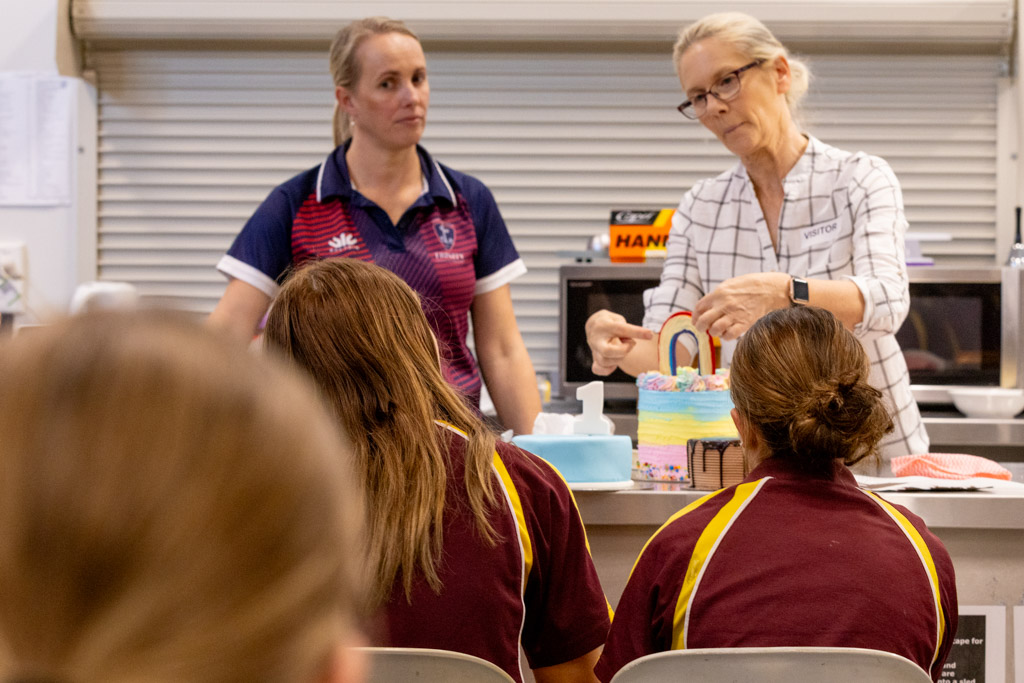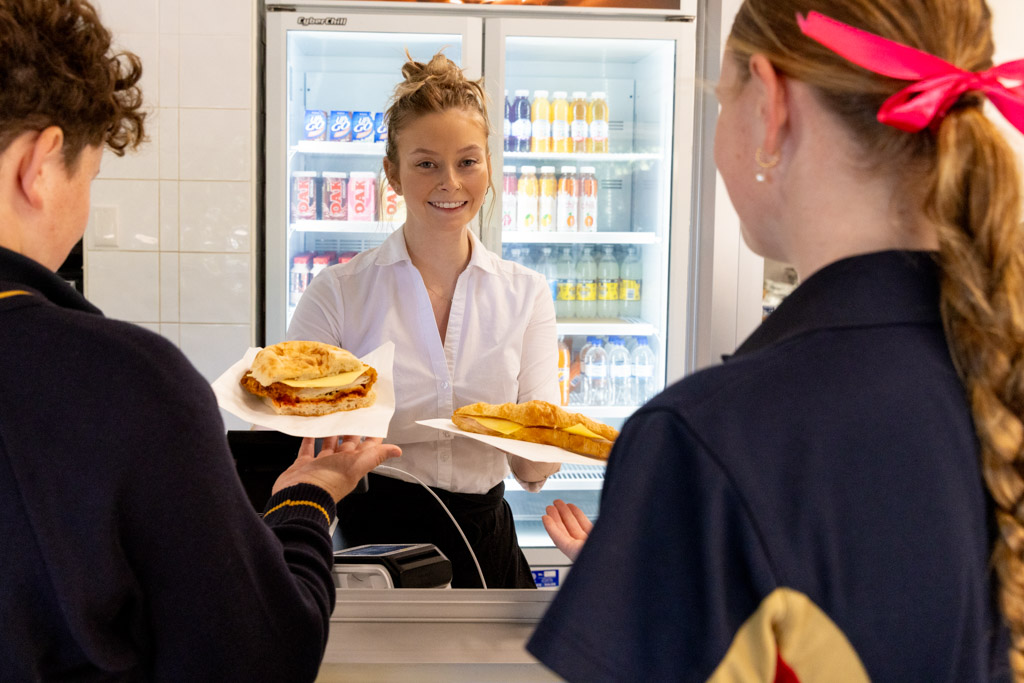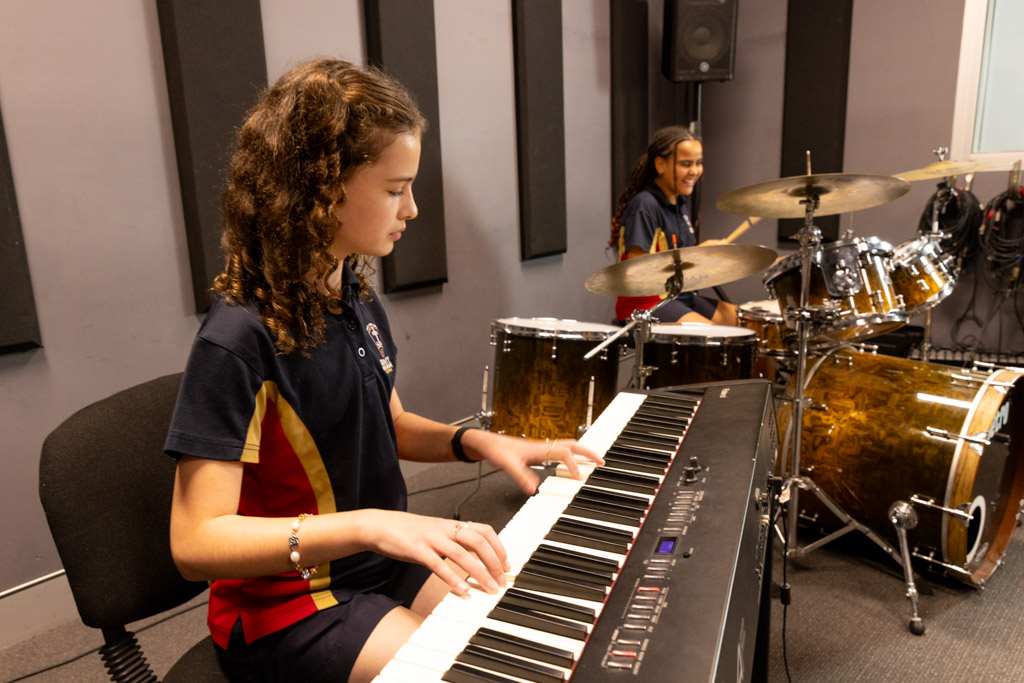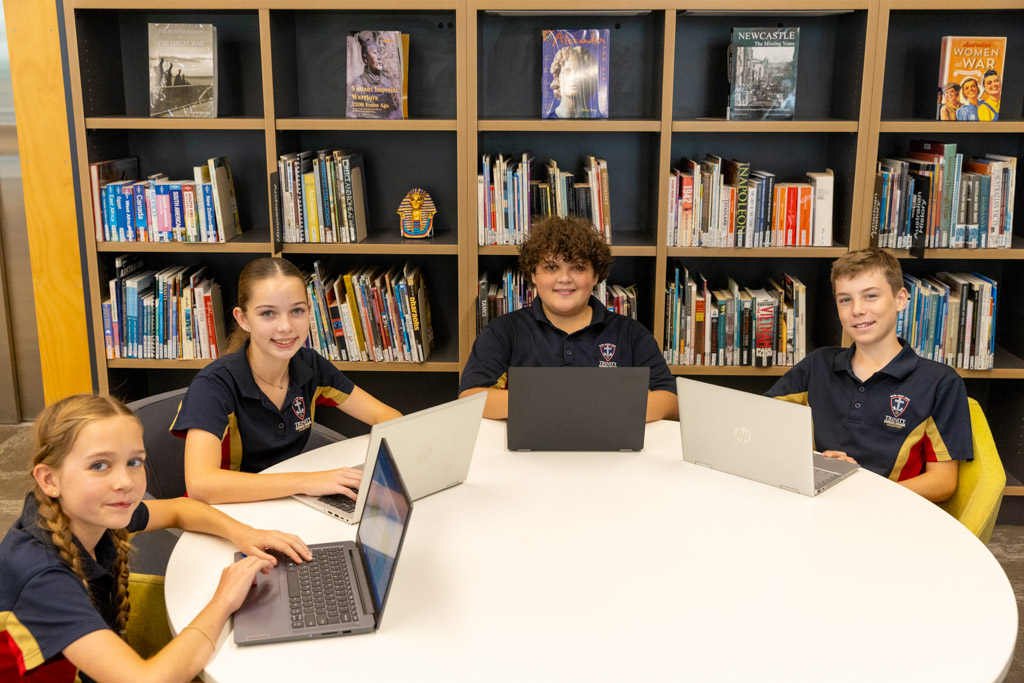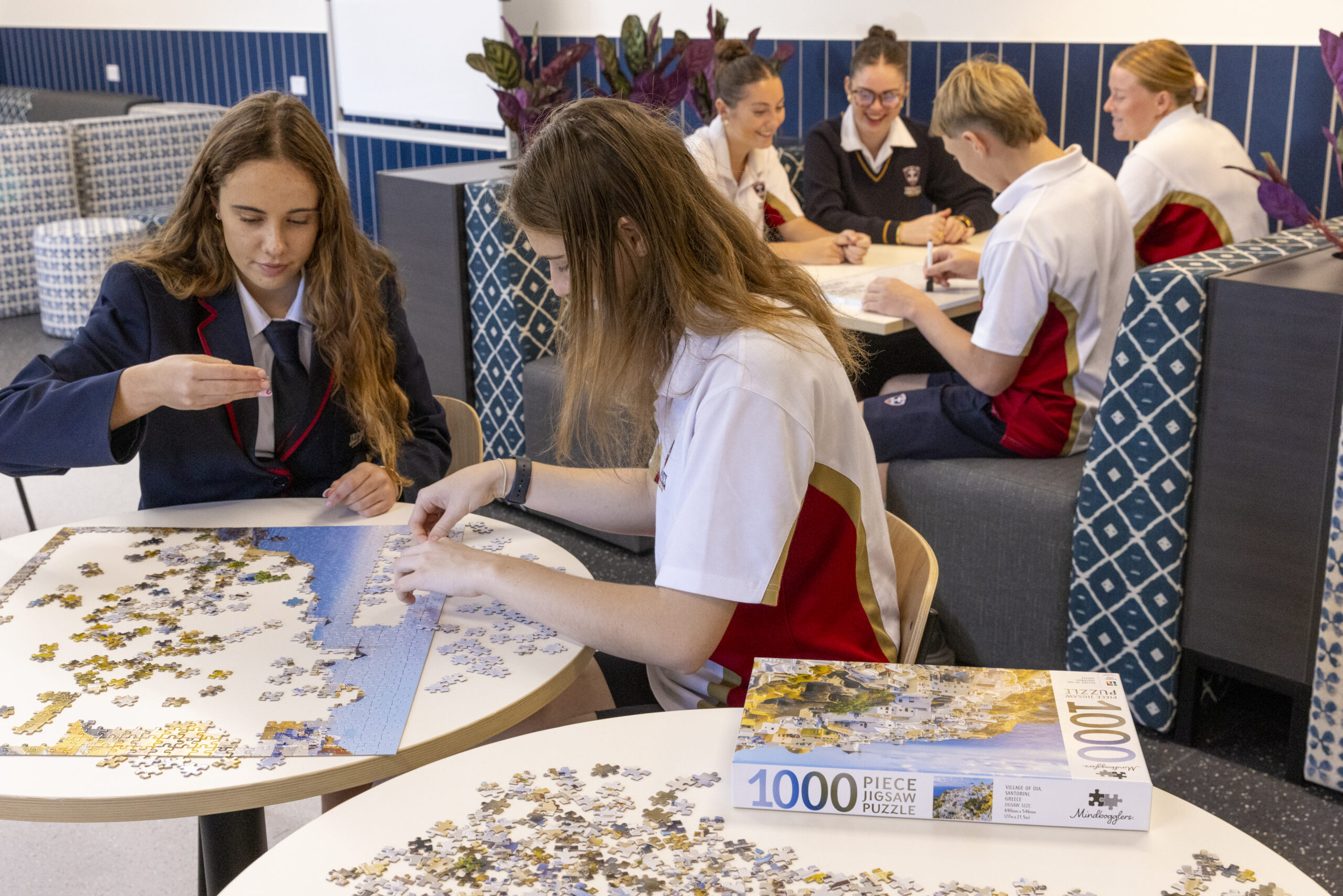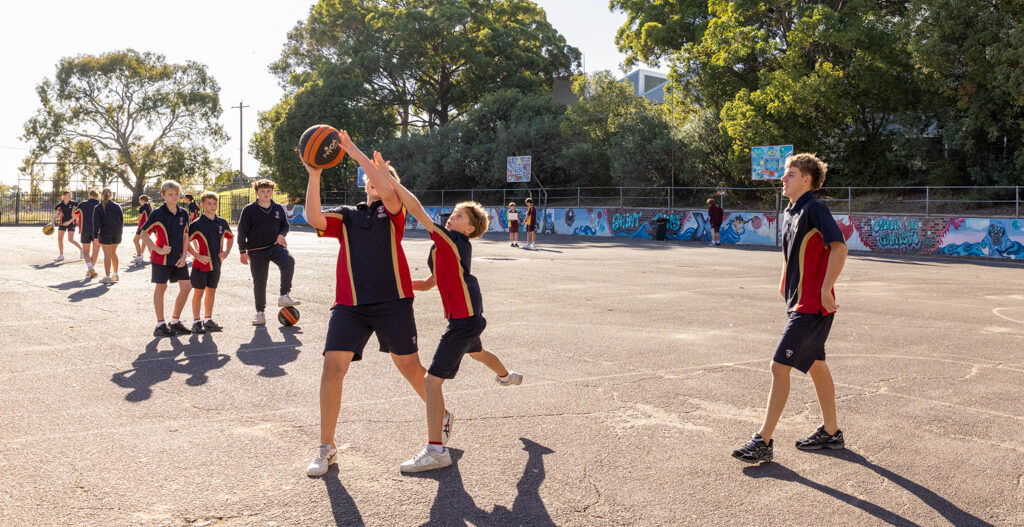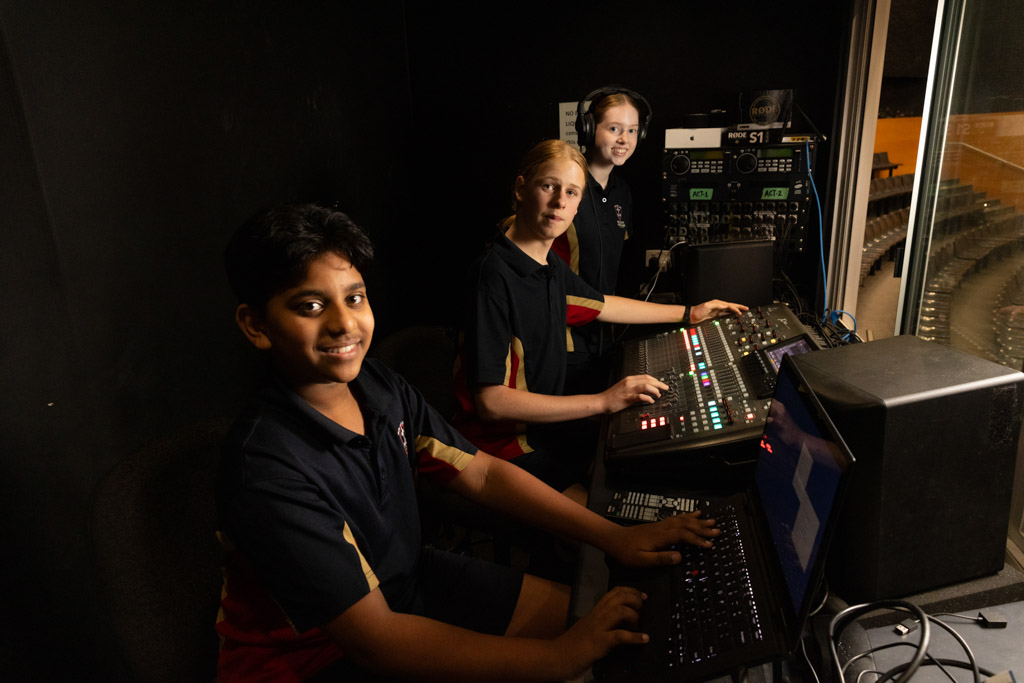Trinity Catholic College
Curriculum
Our agenda for continuous improvement provides students with ample opportunity to achieve their academic potential. As such, classrooms are dynamic, and the way students are assessed is evolving to reflect current best practice and meeting student needs.
Trinity delivers a diverse curriculum designed to give students the ability to tailor an educational pathway suited to their individual needs, interests and talents.
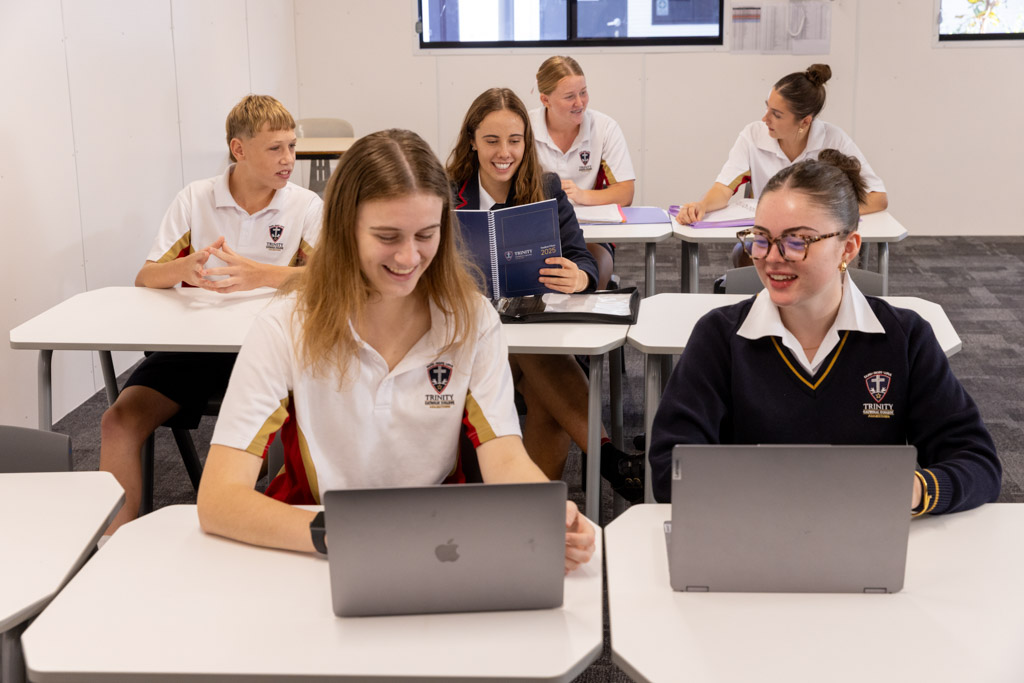
In additional to the set requirements of the NSW curriculum, students have the opportunity to undertake:
-
A gifted education mentor and access to the Diocesan Virtual Academy
-
Studies in partnerships to complement their education such as school based apprenticeships and courses offered through TAFE NSW
-
Advanced Mathematics Preparatory Class
Patterns of Study
Our curriculum offers a broad range of courses that cater to diverse learning needs and where all students will be challenged to achieve their potential.
The mandatory courses of English, Mathematics, Science, History, Geography and Personal Development, Health and Physical Education, are taught throughout Year 7 to Year 10.
Stage 4 - Year 7
All mandatory courses plus:
- Religious Studies
- Music
- A language other than English (such as French or Italian)
- Technology and Applied Studies
Stage 4 - Year 8
All mandatory courses plus:
- Religious Studies
- Visual Art and
- Technology and Applied Studies
Stage 5 Year 9 and Year 10
All mandatory courses plus:
- Religious Studies
2 elective courses selected from the following list:
- Aboriginal Studies
- Business Studies Pathway
- Child Studies
- Commerce
- Design and Technology
- Drama
- Food Technology
- Industrial Technology – Timber & Metal
- International Studies
- iSTEM
- Languages
- Marine and Aquatic Technology
- Music
- Physical Activity & Sports Science
- Photography and Digital Media
- Psychology
- Textiles Technology
- Visual Art
- Visual Design
The courses above are offered to students as they begin Stage 5. However, a course needs sufficient numbers of students to select it in order for a class to be timetabled.
In Year 8, students select courses to study once they begin Year 9 the following year. Elective courses are designed to run over 2 years to enable students to delve more deeply into the related knowledge and skills.
Stage 6 Year 11 and Year 12
Senior students can select from a wide range of 2 Unit courses across all Key Learning Areas as well as Extension courses, Vocational courses and Board Endorsed courses catering to the diverse learning needs of our students.
Stage 6 Course Handbooks are provided to students in Year 10 to assist them with course selection
Co Curricular
Trinity highly values pursuits of academic excellence. Our staff are committed to assisting all students to reach their academic potential through a range of academic endeavours outside of the classroom. These include the Science and Engineering Challenge, Mock Trial Competition, Public Speaking Competition, the Lions Youth of the Year Competition and Debating.
Students are also encouraged to participate in various national competitions for Mathematics, English, science, Chemistry, Geography, and Computers.

Learning Support
At Trinity, we have a Learning Support Faculty which includes a team of people such as a Leader of Learning, Specialist teachers, Psychologists and Assistants, who support students with disabilities within the classroom setting and at the Learning Hub.
National Consistent Collection of Data (NCCD)
At Trinity Catholic College, the Learning Support Team provides support and programs for students with disabilities. All students who have been identified as having a disability (i.e. diagnosed or Imputed) are part of the National Consistent Collection of Data (NCCD). Four pieces of evidence in the following areas, need to be provided within each Census period (August to August) for each student; consultation, assessed need, adjustments and review. The administration and completion of this data, as well as creating Personalised Plans, is initiated by the Learning Support Teacher Case Manager and is developed in a collaborative meeting of all relevant stakeholders i.e. class teachers, Leaders of Learning, Leaders of Wellbeing and Engagement, Psychologists, any external providers/specialists, parents and the student.
Life Skills Programs
Students have the opportunity to undertake partial or full Life Skills Programs during Year 7 to 10.
The four core subjects of Mathematics, English, Science and HSIE are taught by a specialist Learning Student Teacher in a discreet setting. At Trinity Catholic College, we advocate for inclusivity and hence offer Life Skills courses in PDHPE, Religious Education, Music, Visual Arts, Technology and Stage 5 electives in mainstream classes supervised by the classroom teacher. Composition of student courses are based on the needs of the student and are in consultation with all stakeholders.
Identifying students with Learning Needs
Learning Support Teachers and Assistants provide in class support in targeted subject areas, for students on NCCD to assist and advise both classroom teachers and the students, in accordance with their level of funding (i.e. Quality Differentiated Teaching, Supplementary, Substantial and Extensive). A student profile is available on Compass with relevant plans, provision of task adjustments, recommended teaching adjustments and goals attached.
Curriculum Support Program (CS)
The Curriculum Support Program (CS) is for students who are funded under the National Consistent Collection of Data (NCCD). These students are given the opportunity to access support for one or part of a lesson per week/fortnight, to work within a small group, in a supportive environment, with the guidance and support of a Learning Support Teacher. Goals are prioritised and the lesson is focused on areas such as planning, organisation, exam preparation and either starting or completing assessment tasks. Adjustments to tasks is discussed between the Learning Support teachers and classroom teachers and other learning tools such as various scaffolds, checklists, or alternative formats for assessments are made to support students learning. Students can also be booked into the Learning Hub via Compass by classroom teachers in consultation with the student and the relevant Learning Support Teacher Case Manager.
Year 10 –Goal Setting Support Program
Another type of support program which is available is the Year 10 ROSA (Record of Student Achievement) and Transition to Stage 6 Support Program. During Term 4 each year, Year 9 students, who are part of NCCD, meet with the Learning Support Case Manager and discuss their strengths, preferences and goals for the future. The schools’ Careers Adviser, Leader of Wellbeing and Engagement, Learning Support Teachers and any other relevant stakeholders, meet each student, either in a group and/or individually, to set goals and plan for the events and tasks which need to be completed during Year 10. A number of external and internal tasks need to be completed to meet the compliance standards for the ROSA i.e. Minimum Standards for the HSC, school attendance and evidence of accessing in class tasks and completion of assessment tasks. Other programs such as Work Experience, TAFE YES Program, White Card and First Aid Certificates are also an option throughout the year.
Transition Program
Year 6 to Year 7 Transition Program for Students with Disabilities (NCCD) is a collaborative process where Learning Support staff at Trinity Catholic College work closely with pathway and non-pathway primary school staff, parents and students which ensures a smooth transition from primary to high school. Transition for high school is initiated by the Primary School Learning Support Team during Term 2 of each year. This involves the Leader of Learning, Learning Support, Learning Support Case manager and other relevant stakeholders attending the students’ Personalised Planning Meetings. Scheduled visits and observations in the primary school setting, as well as additional tours and peer mentoring in the high school environment, are available when appropriate.
Task or Disability Provisions
Trinity Catholic College provides Task Provisions for students on NCCD in years 7 to 10, in exams, tests and assessments. Students who have a diagnosed or imputed disability which prevents them from accessing the curriculum, at the same level as their peers, can have additional supports relevant to their disability. The school follows the same eligibility criteria which NESA (National Education Standards Authority) outlines. These provisions, dependent upon the level of need, include extra time, separate supervision, rest breaks, a reader, scribe or computer use. Documentation from a specialist outlining the recommended provisions is to be included when making an application for Disability Provisions for Years 11 and 12. The Learning Support Team provide a list of students who require additional provisions which all teachers can access through Compass and it is regularly updated throughout the year. Organisation of Semester one and two task provisions and Disability Provisions for exams, is provided and supervised by Learning Support Team members. Provisions for in class tasks and assessment is organised by the classroom teacher in collaboration with relevant Learning Support staff.
Helpful links include:
- https://www.nsw.gov.au/education-and-training/nesa/hsc/disability-provisions
- https://www.nccd.edu.au/disability-standards-education
- https://www.mn.catholic.edu.au/
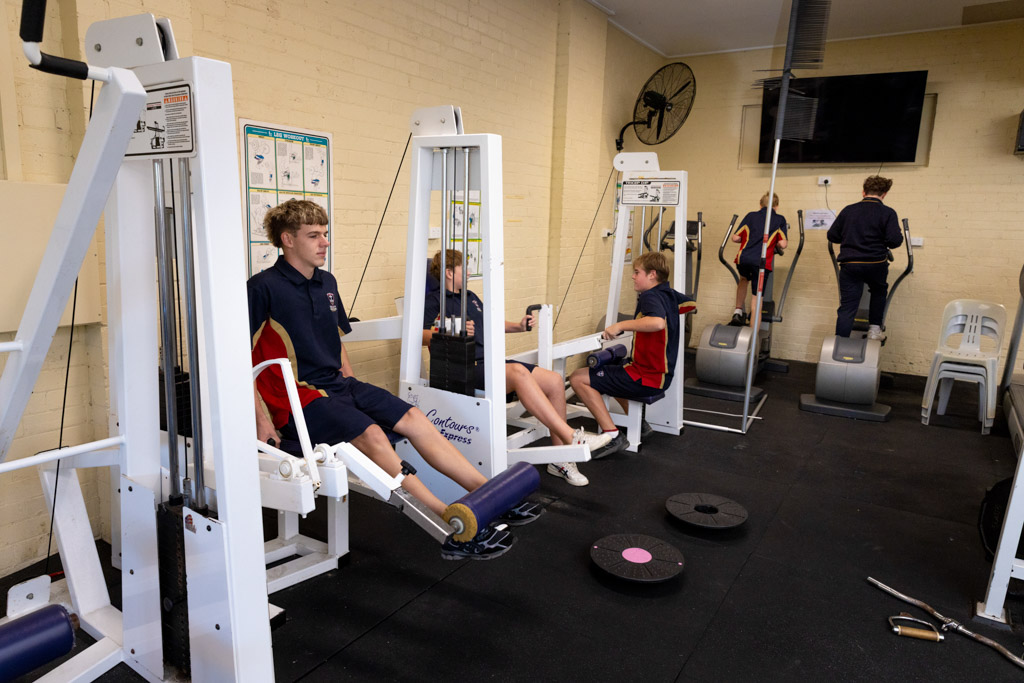
NAPLAN
All students in Years 7 and 9 in Australia are required to sit the National Assessment Program Literacy and Numeracy (NAPLAN). NAPLAN takes place over three days in the second week of May each year with testing in Literacy (Writing, Reading and Language Convention) and Numeracy (non-calculator and calculator). Parents and the school will receive a statement of performance. The school uses NAPLAN results to indicate future planning and teaching needs.
Aboriginal Education
Our Aboriginal and/or Torres Strait Islander students are offered wide variety of opportunities. Aboriginal and Torres Strait Islander culture and knowledge are embedded throughout the curriculum across all subjects.
Trinity is committed to closing the gap and creating high expectations for our Aboriginal and Torres Strait Island students by working through the What Works Program to identify goals and strategies that ensure the best educational outcomes.
Cultural Enrichment Program
The Cultural enrichment program focuses on the relationship between culture, curriculum, and well-being. Students that require additional academic support can access small group lessons, where specific student literacy and numeracy goals are targeted.
Students can also access additional support in class for targeted literacy and numeracy goals as identified in the individual student Personal Learning Plan (PLP).
Scholarships and Academic Opportunities
Aboriginal and/or Torres Strait Islander students are offered a range of scholarships and academic opportunities including the STEM ASSETS program and Wingara Mura – Bunga Barrabugu Summer School Program offered at the University of Sydney. Trinity has a gifted program for all students with culturally appropriate means of gifted identification. There are a range of leadership opportunities for Aboriginal and/or Torres Strait Islander students including Cultural leadership positions as part of the Student Representative Council.
Yula-Punaal Education and Healing Centre
Trinity Catholic College offers students a connection to country and cultural immersion through the Yula-Punaal Education and Healing Centre. Students are taken off-site to learn about traditional culture and caring for country, whilst gaining a Certificate II in Conservation and Land Management (CaLM).
Our Landcare program enables students to gain traditional sustainable environmental practices through caring and regenerating the campus grounds. So far, Landcare has regenerated the Kitchen Garden and created a Bush Tucker Food Forest with over 40 different species of bush tucker plants.
